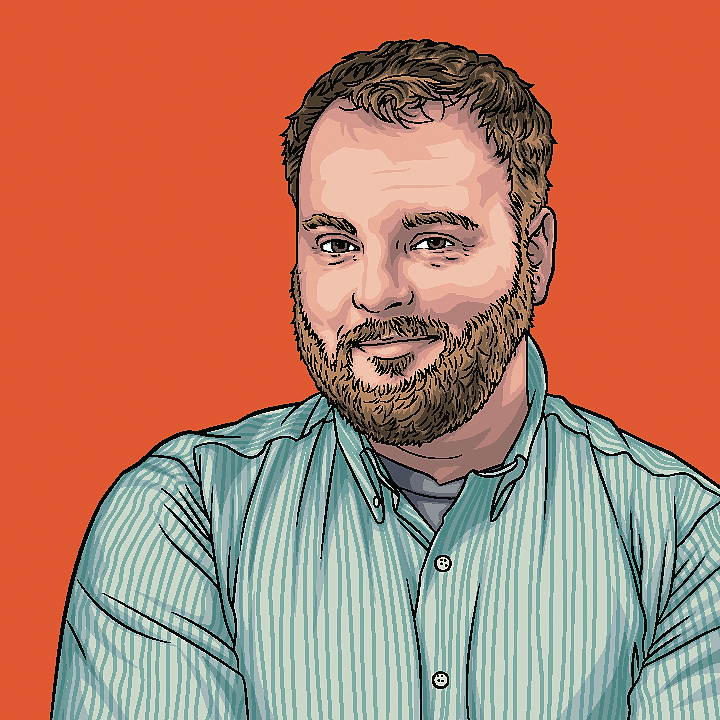What do Marines and conflict journalists have in common?
We’re definitely both adrenaline junkies; we like a challenge, and we’re suckers for punishment. I didn’t deploy to Afghanistan thinking I was going to have a Sealy Posturepedic bed to sleep on for six months; I’m sure Finbarr felt the same way. But the way we processed the aftereffects of war is different. Fin writes in the book about how we’re both plagued by guilt, or what’s known as moral injury, but Marines are haunted by what we did or didn’t do during combat. For journalists, it’s about watching and documenting people getting hurt or killed without being able to do anything.
In the book, you talk about meeting Finbarr for the first time and some of your preconceived notions about journalists.
I’d seen other Marines get in trouble thanks to reporters; I’d even been disciplined when a photo that one media outlet published showed my uniform sleeves rolled up. I was already responsible for an outpost, two villages, millions of dollars in gear, and fifteen Marines, and I didn’t want to be responsible for anyone else — especially someone who was unprepared for harsh living conditions or other realities of war. And I didn’t trust journalists to get the stories right. When I had reporters embedded in my unit in Fallujah, they showed up, they videotaped us, and they left. Finbarr was different. He became part of the squad. He helped take the trash out. He helped clean in the morning. He got it right.
I think there’s a narrative out there that warriors are unbreakable, but you show a different side.
Unbreakable, yeah. We’re absolutely breakable. When you’re in the military, you have to suppress your emotions just to be able to function. Then you get home, and you’re back with your family, and you’re supposed to feel happy. But I had a hard time turning the switch back on. PTSD is kind of a combination of a slow burn and specific triggering incidents. You have these moments that are like stepping on Legos in the dark. When you find them, they really friggin’ hurt.
You eventually overcame PTSD and a traumatic brain injury. What worked for you?
As far as mental health goes, I’m hesitant to say I’m a success story. I’ll never be cured. I don’t think there is a cure for moral injury. But therapy was very effective. I wish I’d gone earlier; it was obvious that I needed help. But I think there’s still a stigma in the Marines — asking for help can be seen as a sign of weakness. It’s also useful to have a creative outlet. Mine is The War Horse, a nonprofit online newsroom that I founded, focusing on the Departments of Defense and Veterans Affairs.
How does your love-hate relationship with the Marine Corps influence The War Horse?
If we’re only publishing fluff stories, then we’re propaganda. If we’re only running bad stories, then we’re adversarial. We want the scales to be balanced. That comes through reporting on the good, the bad, and the ugly. A recent project was an exposé of the inappropriate exchange of naked photos of female Marines, and it was definitely the uglier side. That story showed people what to expect from our newsroom.
What was it like writing a memoir with someone else?
It was really easy, actually. We wrote the book in three sections: Finbarr’s narrative arc, my narrative arc, and our joint narrative arc. They fell together pretty seamlessly. For me, writing was therapeutic. The ultimate goal was always to publish, but I had some hesitations. I’m a pretty private person, and writing this book meant delving into some very personal issues — mood swings, suicidal thoughts, the effects of the war on my marriage. But it helped that Fin and I both had the same motivations. We wrote the book for the greater good of the veteran community, to help people feel less alone. I know that I’m not the only person in my squad who has battled thoughts of suicide, and I wanted to do right by the people I served with and tell not just my story, but our story.



